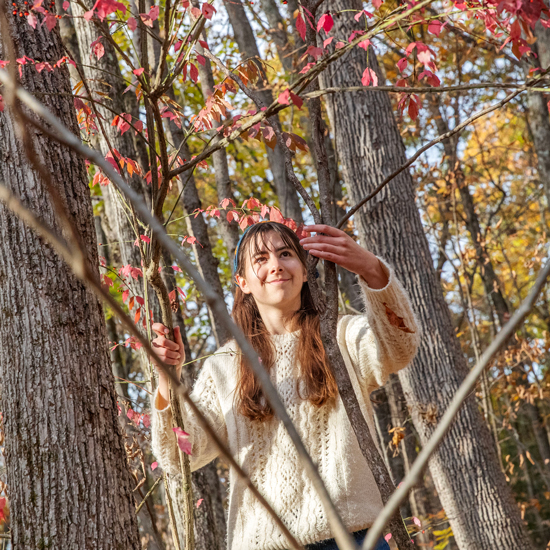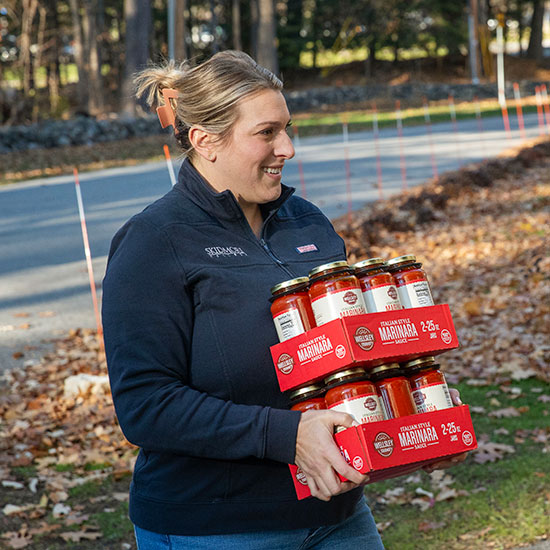Faculty-student collaboration at its best: Summer research at Skidmore
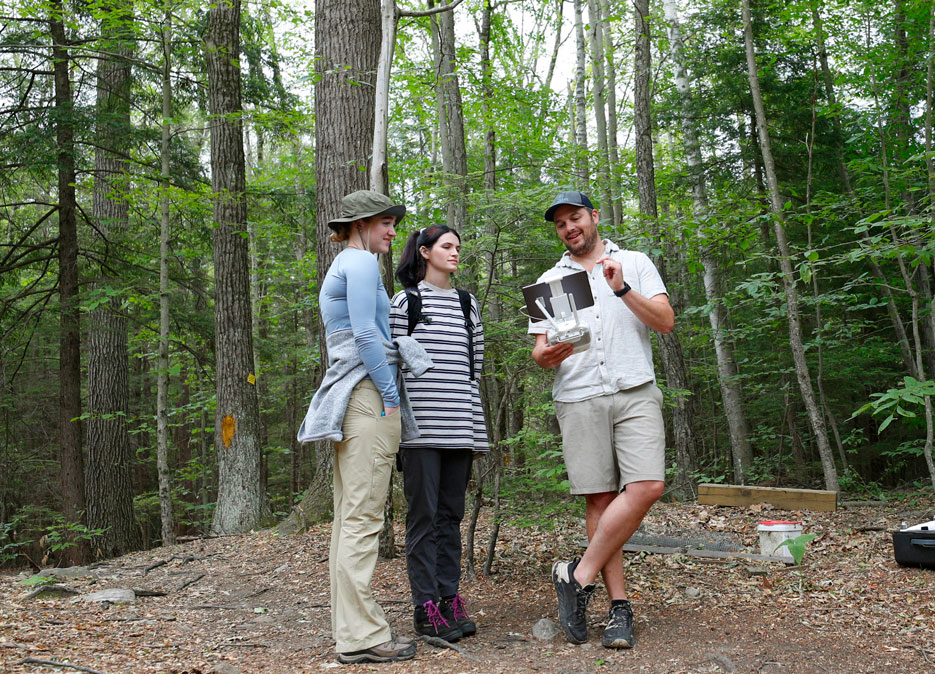
What if you could take your undergraduate research to the next level?
From construction of a fully operating greenhouse on Skidmore’s campus to tracking down lost art from the 1980 Winter Olympics in Lake Placid, 2022 was another great year for Skidmore’s Faculty-Student Summer Research Program.
Forty faculty members and 115 students conducted research on dozens of projects this summer. Forty-nine students received funding through the research program, and 66 students were funded through external grants. Disciplines included chemistry, political science, health and human physiological sciences, neuroscience, psychology, geosciences, environmental studies and sciences, arts administration, social work, computer science, biology, sociology, dance, and anthropology. The GIS Center for Interdisciplinary Research was also involved in numerous projects.
What did the students enjoy the most about the program? According to students Avery Blake ’23 and Morgan Foster ’23, "the best part of summer research was getting a taste of what graduate-style research feels like by working with, and not under, a professor.”
Here is a sampling of some of the research projects:
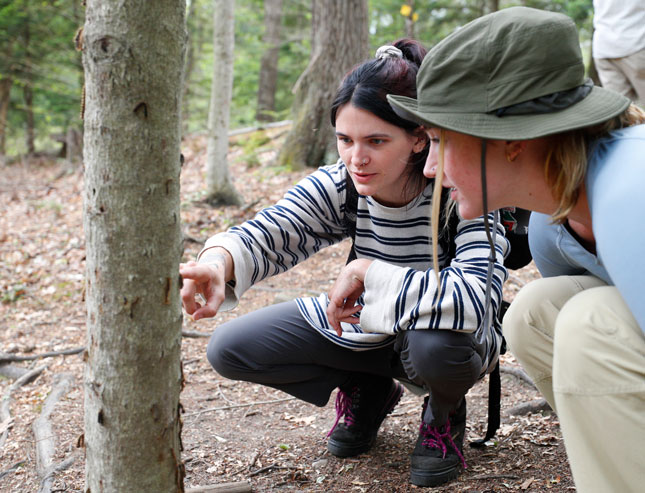
Spongy moth defoliation in the Lake George Watershed
Rising seniors Avery Blake, left, and Morgan Foster, right, spent the summer researching spongy moths, formally known as Lymantria dispar moths, by conducting fieldwork with Charlie Bettigole, director of the GIS Center for Interdisciplinary Research, in the Lake George Watershed. Using GIS analytics, they tracked defoliation patterns and species behavior. Spongy moths were brought to the United States in the 1800s to be bred with silkworms, a small colony formed in western Massachusetts, and they’ve been spreading throughout New England ever since. The population explodes every 10 to 15 years, causing mass defoliation. This year marked the second in a row of such a population boom.
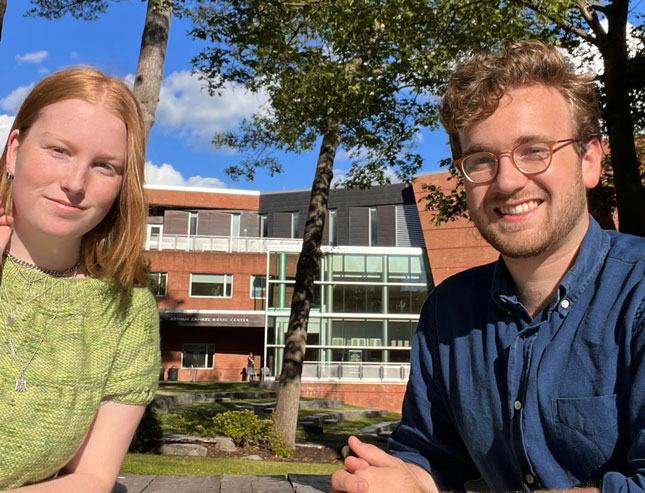
Rediscovering lost art from the 1980 Winter Olympics in Lake Placid
Evan Little '22 and Maddie Egger '23 spent their summer in Lake Placid, New York, locating and cataloging public sculptures commissioned for the 1980 Winter Olympics. Their research with David Howson, senior teaching professor of arts administration, included searching through physical and digital archives, speaking with some of the artists themselves, and visiting the sculptures in person to record their location and condition. They met with Lake Placid locals who are involved in the regional arts scene and lived in Lake Placid during the Olympics. They also talked with officials who served on the 1980 Olympic Fine Arts Committee. To conclude their research, the students presented a comprehensive catalog of sculptures made for the 1980 Winter Olympics, now accessible to Lake Placid community members and visitors.
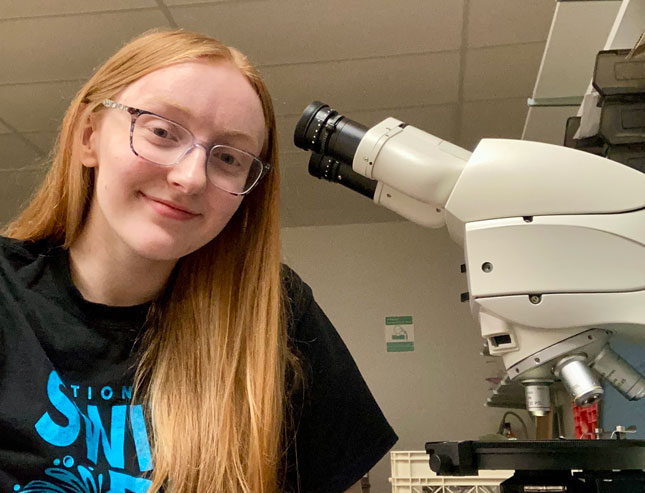
Characterizing a subvolcanic magma plumbing system in Iceland
Caroline Rogers ’24 spent the summer working with Visiting Assistant Professor of Geosciences Andrew Horst to research the direction of volcanic magma flow using anisotropic magnetic susceptibility data and thin section analysis of intrusive gabbro from Skagaströnd, Iceland.
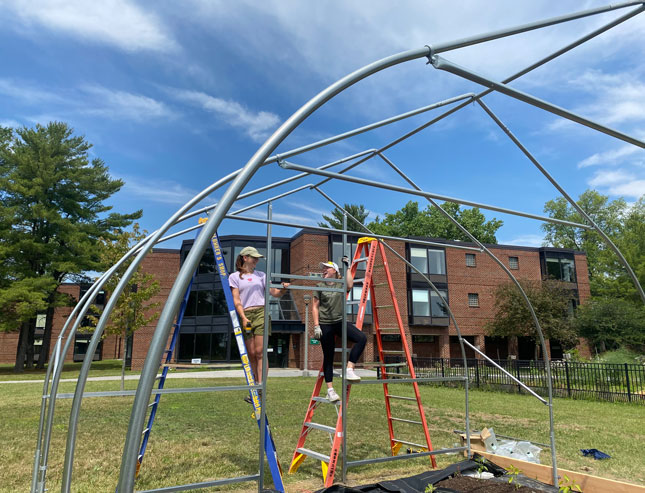
Constructing a hoop house
Emily Chase ’22 and Julia Danielsen ’22 spent the summer building an on-campus hoop house that will enhance community and sustainability efforts at Skidmore. The hoop house will serve as a greenhouse for growing winter greens, such as kale and spinach, for consumption by the Skidmore community through Dining Services, and it will be open for educational and gathering purposes as well. Both environmental studies majors spent their senior year researching how hoop houses could help Northeastern farmers expand the growing season, with the guidance of Lowery Parker, visiting assistant professor of environmental studies and sciences.
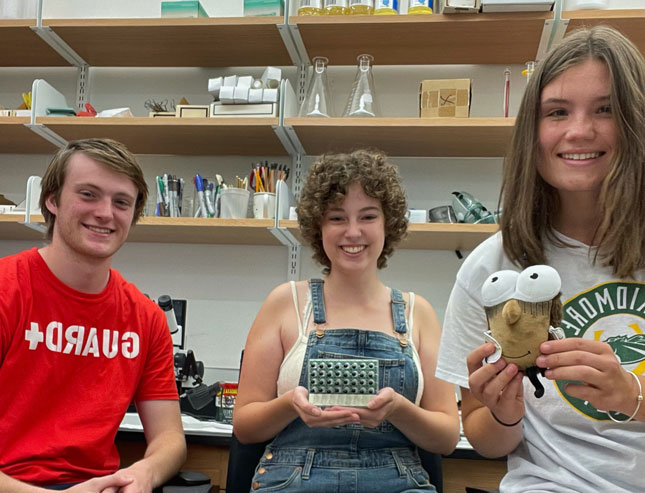
Researching fruit flies
This spring semester, Ethan Hull '23, left, Anika Eastman '25, center, and Sara Burr '25, right, worked with Professor of Biology Bernie Possidente to explore the effects of microplastics on fruit flies' circadian rhythms. This summer, they continued their research and discovered that microplastics can influence the activity and life span of fruit flies depending on their sex.
The Faculty Student Summer Research Program is part of the Zankel Experience Network (ZEN). ZEN was established in 2020 by Jimmy Zankel ’92 and Pia Scala-Zankel ’92 to encourage the support of like-minded donors who hope to expand Skidmore’s commitment to experiential learning.
If you’re interested in seeing the names of this summer’s research projects, along with names of faculty and students who participated, see the following:
